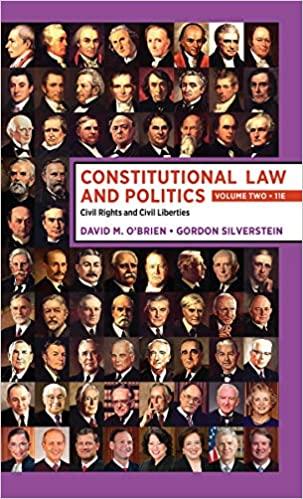Question
According to Ransom and Olsson (2017), health care resources are defined as all materials, personnel, facilities, funds, and anything else that can be used for
According to Ransom and Olsson (2017), health care resources are defined as "all materials, personnel, facilities, funds, and anything else that can be used for providing health care services." Resources in healthcare--whether financial, human, or clinical--are always limited, whether you are working in developing countries or in the U.S. Using resources to their fullest potential requires appropriate planning and the allocation of those resources to the areas where they can bring about the best outcomes.
When organs are transplanted, for instance, they are scarce and invaluable resources that stand between imminent death for some and the last shred of hope for others. Yet, how do we decide who gets those precious resources and who doesn't?
According to Armstrong and Whitlock (1998), the criteria for fair distribution of limited resources include: need, equality, ability to pay, contribution, and effort. Each criterion is weighted "in balance" by decision makers to determine whether justice is being served in any given situation. Read about each factor below and answer the questions at the end of each paragraph, as well as at the end of the list.
Need: While the concept of need may appear to be a useful criterion, most patient situations (with the exception of those involving procedures that are strictly elective) involve a known medical need for treatment or service. This is complicated by the fact that individuals may perceive need differently than their professional providers and/or their health plans. Therefore, to what extent should this be factored in to the equation? On what basis should we determine/define differing degrees of need?
Equity/Ability to Pay: The concept of equity sounds relevant and useful; however, it rarely serves well as an effective criterion for allocating health care resources. For example, in any health plan, organization, or community, there will be a wide range of demand for services ranging from individuals who require few health care services to those who require continuous care to sustain life. No one would advocate the provision of services to healthy individuals just to get them an equal share of publicly financed health care. Likewise, U.S. norms will not support the denial of health care to an individual merely because the number of services or cost of care has exceeded some predetermined quota. Nonetheless, should one's ability to pay (whether directly or indirectly via their insurance) still be a factor? If not, then who ultimately pays for those services not covered?
Contribution:The consideration of contribution requires a determination of what an individual might be able to "give back" to society at a future datenot necessarily financially, but in terms of making a difference through one's job, volunteer work, etc. However, do you think it is fair to consider one's contribution to society in order to receive health care services? In the face of a child vs. a person of advanced age both in need of the same resource, would we still only consider one's potential for future contribution or should we also take into account past contributions?
Patient Effort: Patient effort may be a useful criterion in that patients who fail to observe medical advice or who are habitually non-compliant call into question the level of effort that they are willing to expend to help themselves. Is it reasonable to consider the value of spending limited resources on individuals who have not contributed a reasonable level of effort or cooperation to support the care they receive? For instance, should individuals who continue to smoke, choose to do illegal drugs, or participate in other high-risk behaviors against medical advice still be eligible for limited resources? If so, what standards should be used to make that determination?
While all of these factors are important, if you were the person having to decide who did/didn't receive an organ for transplant, whichoneof the factors listed above would bemostsignificant in your decision-making process? Why?
References:
Armstrong, R. & Whitlock, R. (1998).The cost of care: Two troublesome cases in health care ethics. The Physician Executive, 24(6),32-35.
Ransom, H. & Olsson, J. (2017). Allocation of health care resources: Principles for decision-making. Pediatrics in Review, 38(7).
Step by Step Solution
There are 3 Steps involved in it
Step: 1

Get Instant Access to Expert-Tailored Solutions
See step-by-step solutions with expert insights and AI powered tools for academic success
Step: 2

Step: 3

Ace Your Homework with AI
Get the answers you need in no time with our AI-driven, step-by-step assistance
Get Started


